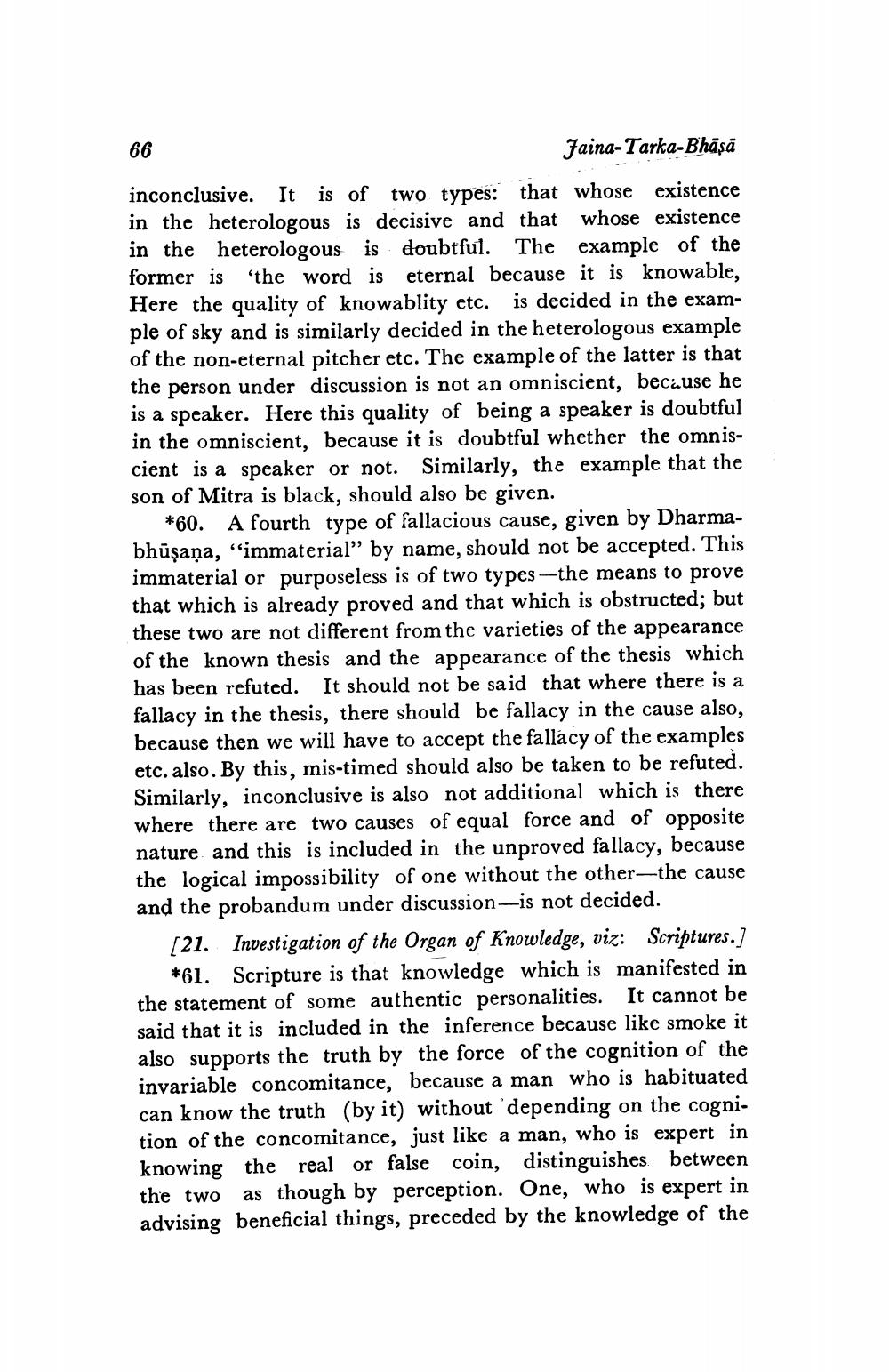________________
66
Jaina-Tarka-Bhāṣā
inconclusive. It is of two types: that whose existence in the heterologous is decisive and that whose existence in the heterologous is doubtful. The example of the former is the word is eternal because it is knowable, Here the quality of knowablity etc. is decided in the example of sky and is similarly decided in the heterologous example of the non-eternal pitcher etc. The example of the latter is that the person under discussion is not an omniscient, because he is a speaker. Here this quality of being a speaker is doubtful in the omniscient, because it is doubtful whether the omniscient is a speaker or not. Similarly, the example that the son of Mitra is black, should also be given.
*60. A fourth type of fallacious cause, given by Dharmabhūşaņa, “immaterial” by name, should not be accepted. This immaterial or purposeless is of two types-the means to prov that which is already proved and that which is obstructed; but these two are not different from the varieties of the appearance of the known thesis and the appearance of the thesis which has been refuted. It should not be said that where there is a fallacy in the thesis, there should be fallacy in the cause also, because then we will have to accept the fallacy of the examples etc. also. By this, mis-timed should also be taken to be refuted. Similarly, inconclusive is also not additional which is there where there are two causes of equal force and of opposite nature and this is included in the unproved fallacy, because the logical impossibility of one without the other—the cause and the probandum under discussion-is not decided
[21. Investigation of the Organ of Knowledge, viz: Scriptures.]
*61. Scripture is that knowledge which is manifested in the statement of some authentic personalities. It cannot be said that it is included in the inference because like smoke it also supports the truth by the force of the cognition of the invariable concomitance, because a man who is habituated can know the truth (by it) without 'depending on the cognition of the concomitance, just like a man, who is expert in knowing the real or false coin, distinguishes between the two as though by perception. One, who is expert in advising beneficial things, preceded by the knowledge of the




